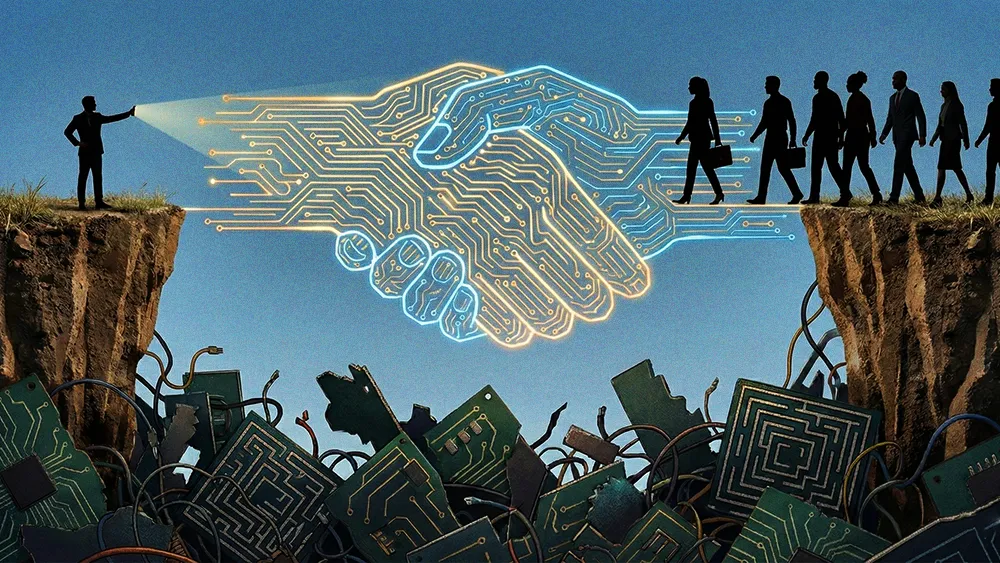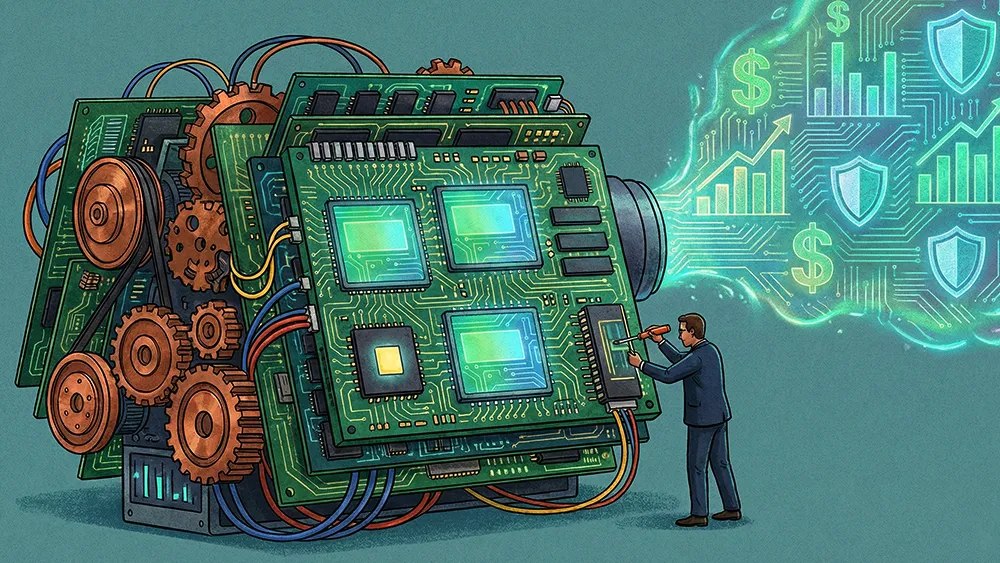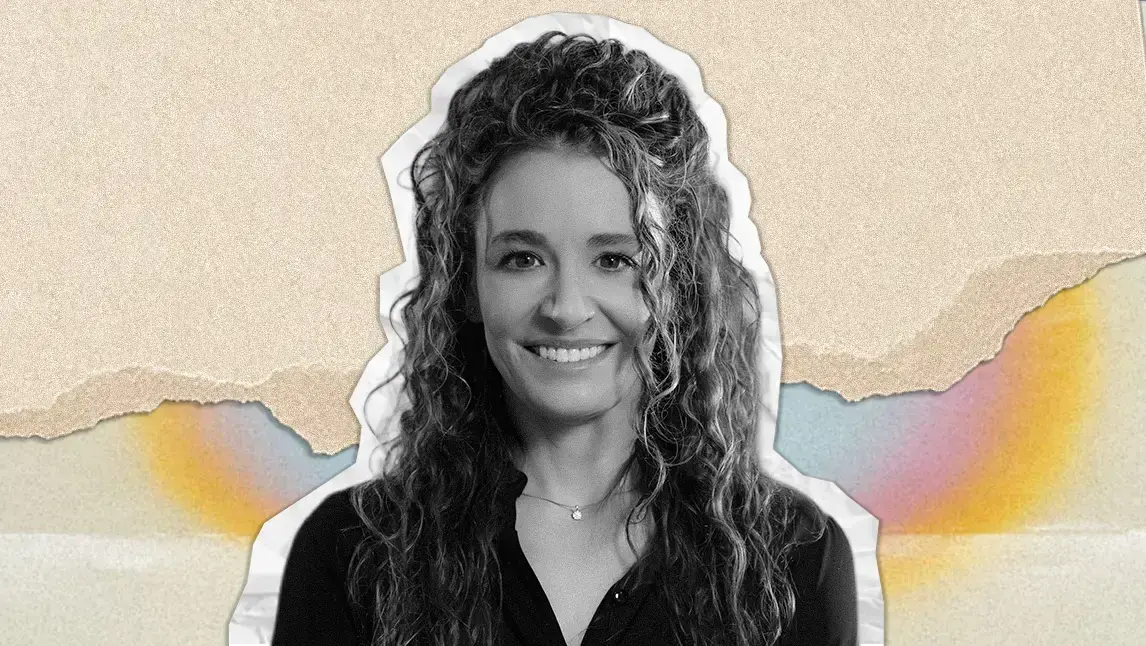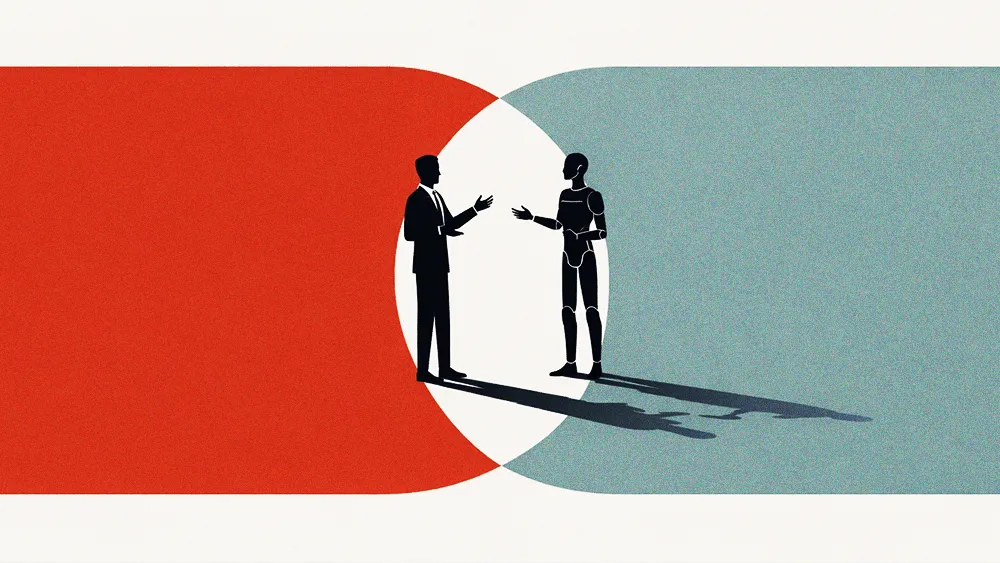
Tupperware’s Global CTO, Gabriel Uranga Betancur, redefined AI adoption as a survival strategy during the company’s turnaround.
He built a results-first framework where each technology decision had to prove immediate value and support scalability across regions.
Uranga’s disciplined approach emphasizes consolidation and the full use of embedded AI tools within existing systems.
As the company stabilizes, he's shifting focus from internal savings to growth, using AI to amplify creative output and consumer engagement.
Every great comeback depends on a series of precise decisions. When every move carries weight, even a small misstep can stall progress. As Tupperware emerges from a 2024 bankruptcy filing, technology choices face intense scrutiny and AI must prove its value fast. Treated as a tool for survival rather than experimentation, it now carries the pressure to help a lean team work smarter, scale faster, and build lasting momentum.
Gabriel Uranga Betancur is Global Chief Technology Officer at Tupperware, where precision and performance guide every decision. With a long career shaped by leading transformations at major enterprises including IBM and Kyndryl, he has built a reputation for turning constraint into strategy and technology into measurable business value. Today, that discipline defines how Tupperware is rebuilding its operations and redefining the role of AI in its recovery.
"We are in a rebuilding phase where every move has to count. Our reality is different now. We have to prioritize tools and projects that create measurable value in the short term. It’s about being strategic, not experimental, and making sure technology directly supports the people who keep the business running," said Uranga.
Proof before purchase: With a heavy emphasis on short-term returns, every technology decision is anchored to immediate, tangible ROI. Nowhere is that focus more visible than in Uranga's disciplined governance model, where every single software license must earn its keep. "I can't hand out ChatGPT or Copilot licenses to everyone, so I’m very selective about where they go and why. The process is simple but strict: anyone who wants a license has to email me with a clear business case that shows how it will create value for the company," he explained.
ROI show and tell: "Every other Friday, we hold an open office meeting to build a sense of community. Anyone who receives a license has to come back the following month and present how they’re using it. It keeps everyone accountable, helps the team see real examples in action, and inspires new ways to apply the tools more effectively."

This philosophy extends to two other core pillars: a strict preference for out-of-the-box solutions and a non-negotiable requirement for scalability. Uranga is actively dismantling the siloed toolsets of the past to fully utilize every existing asset and leverage the embedded AI capabilities of vendors they already partner with. While navigating tight budgets, he has found a unique advantage: the legacy of the Tupperware brand itself remains a powerful asset, attracting innovative startups eager to partner with a household name.
Scale or fail: "In previous years, we had too many tools doing the same job because each region had its own preference," Uranga noted. "Now my focus is on consolidation and scale. When any team brings me an idea, they have to show me the tool and prove it can work across other regions. It all comes down to operational efficiency and scalability. Every extra system means extra cost, and I watch the cost very closely."
Brand-name bargaining: "Many companies want to work with us simply because of the logo, even when I’m upfront about our budget constraints. They see long-term value in the partnership, because for a startup, our logo still carries weight and credibility that can open doors," he explained.
The framework was recently tested through the rollout of a new customer care tool, a project that validated Uranga’s ROI-first philosophy. The math behind it was straightforward. "Each customer call comes with a cost, so anything that can reduce that cost—or cut it in half—makes the business case. It’s really nothing complicated," he said. Yet the initiative quickly became a cautionary example of why discipline matters. Progress has been slower than expected, a delay Betancur linked to one root cause. "AI is not magic. It’s the same as other products, just with layers of intelligence on top. The moment you start customizing, it takes time, and customization means money. It means cost."
Hungry for more: Now, Uranga is turning the page, shifting his focus from cost containment to growth. "This year’s budget was through bankruptcy, so we only put in the minimum, trying to save as many people as we could," he said. "Now I’m looking to really build for next year. That gives me the appetite to go out there and listen to what is being done in tech, and how we can use it."
Et voilà: He pointed to the launch of Voila, Tupperware’s new glass collection, as proof of what this new approach can achieve. "It took us about four months to relaunch something new, and creating all the materials for the Salesforce, the website, and the press would now be impossible without AI," he said. "We don’t have the people anymore. Period. The only way forward is to let technology fill the gaps and keep us moving."
For Uranga, the shift is about necessity as much as ambition. "We used to be a huge company; now we’re a small company trying to grow again. That growth has to be based on our people and technology. You need to leverage technology to supplement whatever is not there and reshape the processes to be able to grow. That’s the only way."
.svg)





